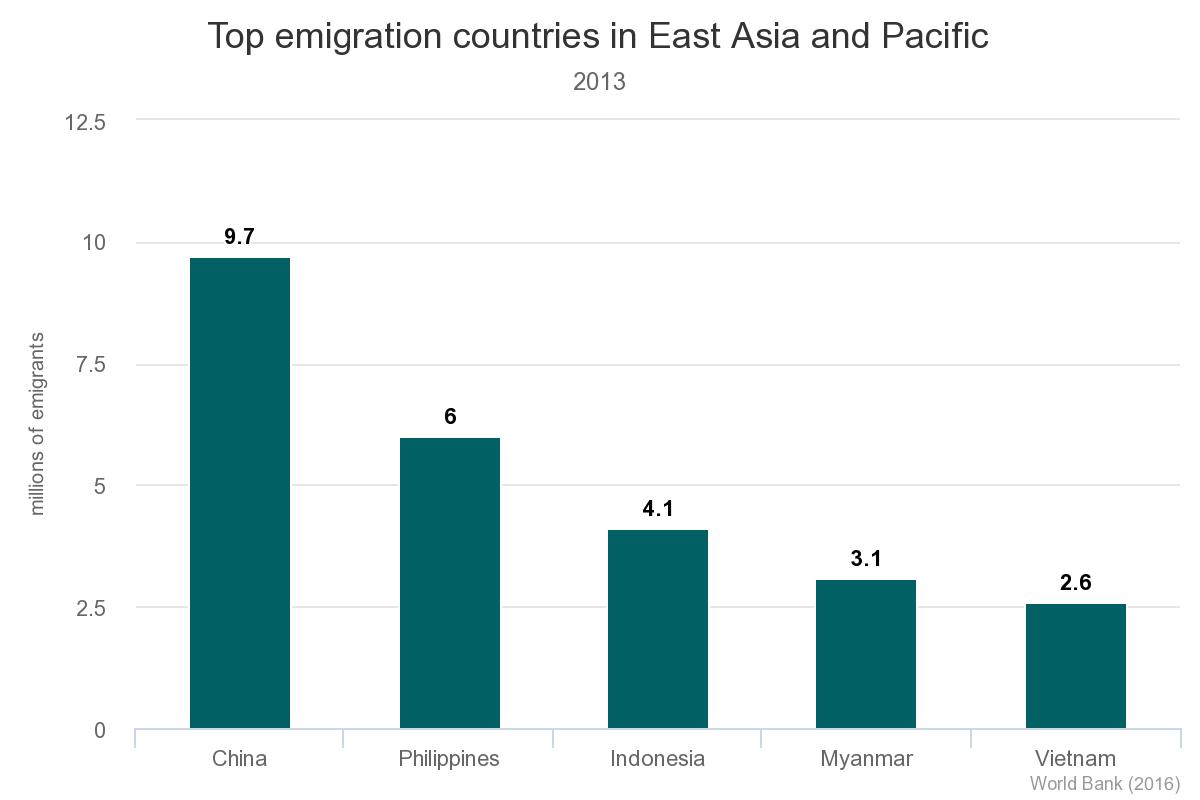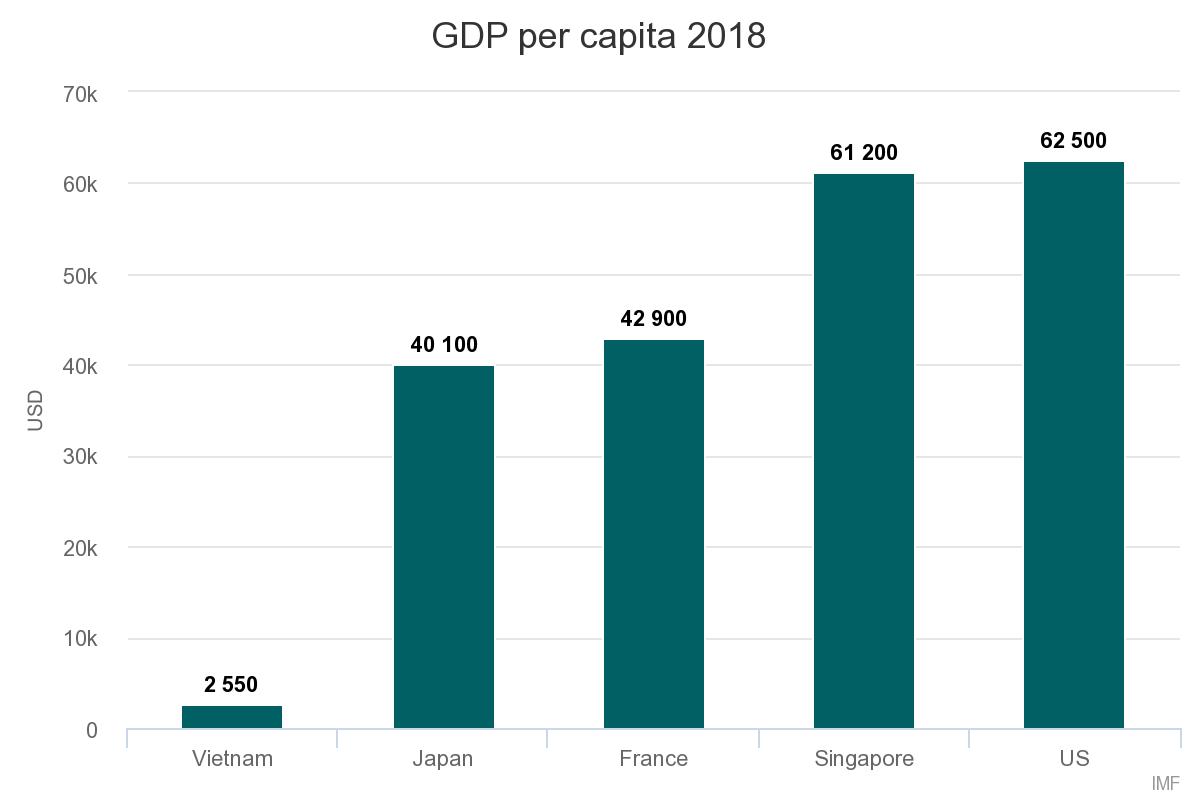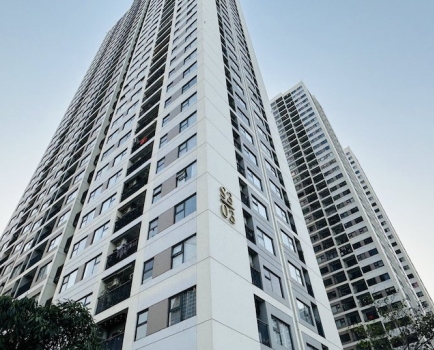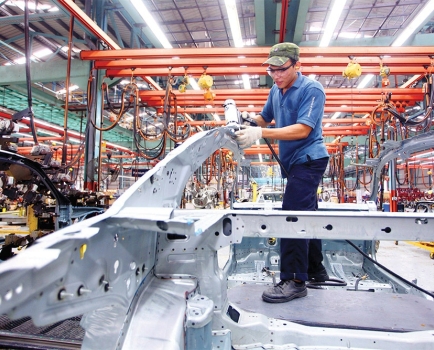For homesick Vietnamese, the grass is not greener on the other side
Sat, 15 Jun 2019 18:39:00 | Print | Email Share:

in languages, culture and lifestyle. Photo by AFP/Ludovic Marin
Living abroad is a dream, but many Vietnamese feel out of place, and wish they hadn't left in the first place.
The snow fell outside her window in Paris, exactly like in the French movies she used to see back home in Vietnam.
Nguyen Phuoc Huyen Anh had been besides herself with excitement when she left home to live in one of the most romantic cities in the world.
Years later, as the snow fell, Anh was not feeling romantic. She yearned for home.
"After seven years of living in France and one year in Australia, I decided to come back to Vietnam. I didn’t love my job there, I never felt like I belonged there, and I didn’t feel like I was myself there," the 37-year-old said, happier in Ho Chi Minh City than in Paris. She returned to Vietnam three years ago.
Anh used to dream of living in a more developed country for a life-changing experience. But, like many other Vietnamese, she felt out of place in a completely different cultural environment.
A 2016 World Bank report said Vietnam was among the top 10 emigration countries in the East Asia and Pacific as of 2013, with 2.6 million emigrants.

But fitting in is no easy task in a new country. Those who have experienced life abroad say that differences in languages, culture and lifestyle are major challenges in building good relationships with locals.
Quynh Tram, who has been living with her husband in the Czech Republic for nine years, struggles to communicate with the locals, as she has no time left for studying after devoting all her energy to taking care of her family of five. When Tram needs to go to the bank or hospital, she has to hire an interpreter.
"When I was pregnant with my second child, at one time a doctor proposed to break my water. I was scared and confused but couldn’t ask questions. We had to hire an interpreter to clarify," the 39-year-old said.
Without knowing the native language, Tram has no opportunities to build a meaningful relationship with the locals. Even forging friendship with the Vietnamese community in foreign countries is a challenging task. She said that Vietnamese people in Prague meet every once in a while, but they only make casual small talk.
"Although there is a large Vietnamese population here, everyone just goes back to their own lives after meetings, and there is neither time nor inclination to build real friendship.
"My friends back home are occupied with their own lives so they only respond with short messages. Apart from my husband, I have no one to confide in."
This is a situation tailor-made for depression. Psychologist La Linh Nga says many of her patients are those who come to her for help after returning from foreign countries. Most of them had left Vietnam hoping for a better life in a country they believe to be more civilized and developed, only to experience culture shock and depression in an unfamiliar setting.
These people struggle to have a relationship with the locals due to language and culture barriers. Familiar with traditional values and customs in a society where family ties are prioritized, they find it hard fit into a Western culture where individuality and personal space are more highly regarded, Nga said.
It's not cheap
Apart from culture differences, Vietnamese emigrants have to bear the burden of high taxes and living costs.
Huyen Anh’s monthly salary in France had a 23 percent deduction for social securities. On top of that came value added tax, income tax, asset tax, energy tax and waste collection tax, which is a huge contrast to Vietnam where taxes are less in quantity and amount, she said, adding that most services were much more expensive than in Vietnam.
"People back home think we are rich because we have our own house and car, but most don’t know there are large loans behind those assets which take decades to pay off."
The high living costs in foreign countries require a high paying job. As most developed countries require more advanced certificates and skills, emigrants struggle to find a secure job with a good salary.
After arriving in Prague, Quynh Tram soon realized that all her diplomas and experience in Vietnam was not of much use, and working in a nail shop like many other emigrants was the only job she could find, even though in Vietnam, she used to be a senior manager at a private school.
Tram’s job was soon interrupted by her first pregnancy, and since then, she unwillingly became a stay-at-home mother to save the kindergarten fees for her three children.
She has had arguments with her husband about returning to Vietnam, but had no success.
"In the last nine years I’ve only come back once, as costs are unbearable. I couldn’t even return for my father’s funeral."
Tough, but better than home
Despite all the challenges, many Vietnamese still dream of living abroad, and they do so by acquiring visas to work or study in another country and staying on.
In South Korea, 35 percent of Vietnamese workers had broken their contracts and stayed on illegally as of April last year, according to the Ministry of Labor, Invalids and Social Affairs.
It added that the number of Vietnamese workers abroad had risen by 78 percent in the 2012-2018 period.
While the number of Vietnamese students have been climbing every year, about 64 percent of them want to stay in the country after graduation, according to a survey of 350 students abroad by recruitment firm SHD.
To make the dream of living abroad come true, Vietnamese emigrants also invest in real estate and marry foreigners. In 2017, Vietnamese buyers spent up to $3 billion on residential properties in the U.S, according to the U.S. National Association of Realtors. Between 2008-2014, about 18,000 Vietnamese people got married to foreigners each year, according to police figures.
One of the reasons behind all these efforts is a motivation for higher incomes and better living standards. Vietnam’s GDP per capita of $2,500 last year is only a fraction of that of the countries they want to live in, such as Japan at $40,100, France at $42,900, Singapore at $61,200 and the U.S. at $62,500, according to data from the International Monetary Fund.

Vietnamese emigrants also believe their children have better education opportunities abroad. Last year, Vietnam ranked sixth in the number of students in the U.S., with 24,300, up 8.4 percent from 2017. Vietnam ranked second in number of students in Japan at 72,300 last year, up 17.3 percent from 2017.
While people like Huyen Anh and Quynh Tram struggle to fit in, there are those who overcome the challenges and find their lives enjoyable in foreign countries.
Tran Nhu, 38, left her high paying job in Vietnam for Canada with her husband and children two years ago, and plans to be there for a long time as she finds her life comfortable in terms of income and children’s education.
"The greatest thing about living here is my children's education. They don’t have to face school pressure and being bullied like in Vietnam. Whether a child wants to pursue academic or occupational path, he or she can make that decision without any prejudice."
But that’s not the case for everyone. Psychologist Nga said that while many Vietnamese are excited to think about the best scenario of living abroad, they don’t come prepared for the worst.
"If an emigrants and a local are weighed, employers would often lean towards the local, who is more productive and more familiar with the work environment and culture," she said, explaining that finding a good job is not as easy as one thinks.
In a typical emigrants family where the husband is the breadwinner, the wife doesn’t have much choice but to stay at home and take care of their children to reduce costs, a boring and repetitive job which could make them depressed, Nga added.
That depressing life is what Huyen Anh left behind. Looking back at the time abroad, she said it was a negative but useful experience.
"It was a good thing to leave Vietnam when an opportunity came, but my leaving showed me where my home was."
By: Dat Nguyen/VnExpress
---------------------------------------------
Same category News :













